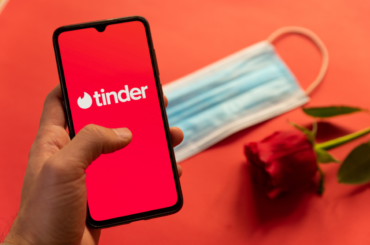Almost every person who swipes right to find love on an app for dating knows what to do. It includes strategically creating an inviting description about oneself, choosing filters for prospective partners such as geographic proximity and age, and declaring whether they seek something casual or serious.
Mirchi is a dating application that offers another possibility in the way of South Asian women. It is part of the growing industry of dating applications that cater to South Asian people. The US has over five million South Asians, including those from India, Sri Lanka, Bangladesh and Pakistan. Most of those South Asians are on the East Coast and the West Coast.
For a child of a South Asian immigrant, the applications serve as a practical way of navigating the winding directions of love not just for their relatives but also for their cultures and of their life.
Mirchi roughly means spicy in several languages in South Asia and is the name of an application launched in LA two years ago. Before it, there was an application called Dil Mil, which means hearts meet.
The applications have drop-down options that try to both capture and classify South Asia’s immense diversity. The apps also offer checkboxes for Bengali, Punjabi, Tamil, Gujarati and more languages. The applications ask users about their religion as well, whether it be Hindu, Jain, Sikh, Muslim or another religion.
Sumitra Tatapudy dealt with such questions to find love. Tatapudy is a 30-something-year old who grew up between Mumbai city and Silicon Valley’s San José. As with several South Asians, her parents also had a marriage planned and agreed upon by their families. The South Asian arranged marriage procedure may vary but generally means that one’s parents or other family members aid them in choosing a life partner for them.
Tatapudy got herself engaged in the procedure for a while but could not commit herself fully to it. A phone call with someone from that kind of marriage arrangement made Tatapudy realize that it would be difficult for her to decide when to say yes.
Tatapudy then dated a person beyond her culture, whom she describes as a Caucasian and an awesome individual. Tatapudy says that she has been having a tough time with her parents since then. Tatapudy stated that her folks would ask whether she would be comfortable with them visiting her and her date.
Eventually, Tatapudy could not handle the good and bad experiences with her new relationship while bearing the burden of her cultural gap with her date and so forth. Then, by relying on dating applications, Tatapudy did what several vicenarians would do in her place.
Tatapudy knew how to use the Coffee Meets Bagel dating application, and she went on many dates through it. However, Tatapudy downloaded the Dil Mil application after a friend recommended it to her. Tatapudy already realized that she had a greater number of dates with men from India, and Dil Mil made it a more efficient process.
Dil Mil promotes connection with culture. When Dil Mil requests users to bring attention to personality traits, it sprinkles adjectives like ‘considerate’, ‘charismatic’ and ‘carefree’ among descriptors like ‘bhangra dancer’, ‘chai drinker’ and ‘Bollywood buff’.
The dating application scene was not too distant from her folks’ arranged marriage customs. Tatapudy stated that one might talk to more than one person during the process before they settle on somebody.
Dil Mil possibly requires you to believe in it, a bit like a South Indian arranged marriage. Unlike mainstream applications, Dil Mil provides options throughout the nation instead of just in one’s locality. It means that you might speak to a person for days before having a face-to-face meeting with them.
It did not turn out to be an issue for Tatapudy or her husband Sandheep Venkataraman. Dil Mil matched Tatapudy with Sandheep after using the application for around six months. The profile of Sandheep said that there would be many Costco trips in store for anyone who swiped right, and Tatapudy shared her Dil Mil story when in a parking lot of Costco.
Tatapudy stated that as she was chatting with Sandheep, the latter discussed attending a concert featuring AR Rahman. Tatapudy instantly felt that there was hope for their relationship as she is also a fan of AR Rahman.
Around 60 days after Dil Mil matched them, the couple met for a cup of coffee in the City of San Francisco. Some months later, Sandheep met Tatapudy’s parents over a San Jose dinner. The couple got engaged in April 2019 and hitched in November two years later.
Tatapudy stated that you could connect well with an individual from an entirely different culture, but she wanted the process to be a lot easier for her. Tatapudy seems to like a man who can clearly express the nuances relating to one’s emotions of hailing from different cultures as well as feeling accepted in it and understood.
Shaadi.com is among the best-known brands in the South Asian dating website world. For your information, Shaadi is a Hindi word that means marriage.
People from South Asia in the United States of America and abroad tend to duck and doge recommendations to assemble Shaadi.com profiles. They also joke about how mothers who make profiles to use for their children stay evergreen.
Still, Shaadi.com and newer applications cater to an enduring human need. The South Asian generation raised in this nation tends to contend with an everlasting process of bridging their native land and present country.
City University of New York associate professor Rifat Salam regards American society as an extremely individualistic society. Therefore, as for Salam, a marriage being arranged in form is the furthest notion you could get from what Americans expect from life and dating. Salam rhetorically says that these should be personal decisions.
As for Salam, South Asians have a culture where they consider their families in the decisions that they make. Conversely, Salam feels that having the application gives one real autonomy. It allows filtering the options yourself and that too without deviating too much from your familial expectations.

